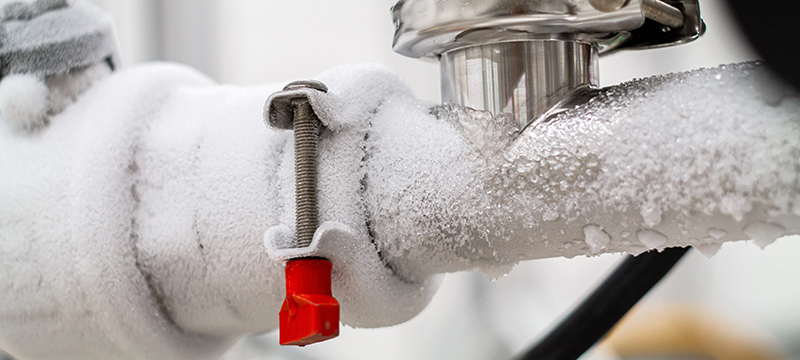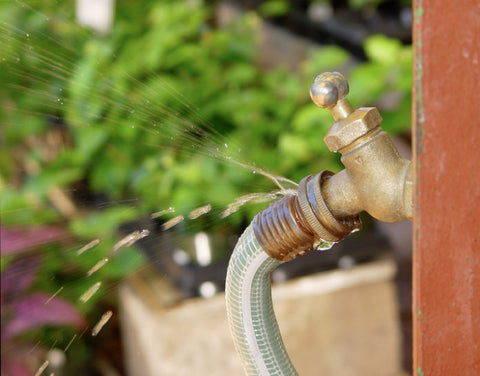Practical Methods to Protect Your Plumbing and Shield Against Freezing in Frigid Conditions
Practical Methods to Protect Your Plumbing and Shield Against Freezing in Frigid Conditions
Blog Article
Listed here below you will discover lots of high-quality ideas when it comes to Winterizing Your Pipes.

All homeowners that live in warm climates should do their ideal to winterize their pipelines. It is something you need to do throughout fall prior to deep winter months really starts. Failure to do so can mean disaster like frozen, split, or ruptured pipes. If the climate exterior is shocking, below are some helpful winterizing hacks to maintain your plumbing system secured even.
Try a Hair Clothes Dryer or Warm Weapon
When your pipes are almost freezing, your reliable hair clothes dryer or warmth gun is a godsend. Bowling warm air directly into them might help if the hot towels do not assist displace any clearing up ice in your pipes. Do not make use of various other items that create direct flames like a blow lantern. This can result in a larger disaster that you can not manage. You may end up damaging your pipes while attempting to melt the ice. And also in the long run, you might even wind up shedding your residence. Be careful!
Open Closet Doors Hiding Plumbing
When it's cool outside, it would be useful to open cupboard doors that are camouflaging your pipelines. Doing this tiny trick can maintain your pipes warm and restrict the possibly dangerous outcomes of freezing temperature levels.
Require Time to Cover Exposed Piping
One easy as well as clever hack to heat up frigid pipelines is to wrap them with warm towels. You can also make use of pre-soaked towels in hot water, simply don't fail to remember to use safety gloves to safeguard your hands from the warmth.
Switch on the Faucets
When the temperature declines and also it appears as if the cold temperature level will certainly last, it will help to switch on your water both inside your home and outdoors. This will certainly keep the water streaming via your plumbing systems. Furthermore, the movement will slow down the freezing procedure. Especially, there's no requirement to transform it on full force. You'll end up losing gallons of water in this manner. Instead, go for about 5 declines per min.
When Pipelines are Frozen, shut Off Water
Shut off the primary water shutoff right away if you discover that your pipes are totally frozen or almost nearing that stage. You will typically find this in your cellar or utility room near the heating unit or the front wall closest to the street. Turn it off as soon as possible to stop more damage.
Don't neglect to shut external water sources, also, such as your connection for the yard home. Doing this will stop extra water from filling up your plumbing system. Regrettably, with even more water, even more ice will certainly accumulate, which will eventually cause burst pipelines. It is best to call a professional plumber for an inspection if you are not sure regarding the state of your pipelines this winter season. Taking this proactive method can conserve you thousands of bucks in repairs.
All property owners that live in temperate climates have to do their finest to winterize their pipes. Failure to do so can lead to calamity like icy, broken, or burst pipes. If the hot towels do not assist dislodge any kind of settling ice in your pipes, bowling warm air straight right into them may aid. Transform off the major water shutoff promptly if you notice that your pipelines are entirely icy or virtually nearing that phase. With even more water, even more ice will certainly pile up, which will at some point lead to break pipelines.
PREVENT YOUR PIPES FROM FREEZING THIS WINTER
A Leading Cause of Property Damage
When the weather is taking a deep nose dive into the cold dreary days, the risk of your pipes freezing and potentially bursting skyrockets. Unfortunately, during these cold dreary months, burst pipes are the most common denominator for property damage. The pipes that are most at the risk are those that are in areas where it is most cold in your home. For instance, pipes located in interior places such as basements, attics, and your garage. Unfortunately, that doesn’t mean that the pipes running through your cabinets or exterior walls can’t freeze. Good news, however, is that you can do things to help prevent pipes from freezing.
How to Prevent Pipes From Freezing
Once the temperature starts to drop during the winter, you should be taking the proper measures needed to ensure that your pipes stay warm and that there is circulation of water through them. Some steps that experts may recommend could go against your better judgement when it comes to saving water and heat. However, it would go without saying that when expenses are compared, damaged pipes could put a bigger dent in your wallet than a water bill.
What Can I Do?
Keep your garage door closed. This is very important, especially if you have water supply lines running through your garage. Open your kitchen and bathroom cabinets to allow warm air to circulate through them. Allow air circulation throughout your home. Keeping the interior doors open will once again allow the warm air to circulate inside your home. Ensure your thermostat is running the same temperature throughout the night and day. If you plan to be away from home during the cold months, set your temperature no lower than 55° F. This should provide enough heat to keep the pipes warm and prevent any remaining water inside the pipes from freezing. For more of a long-term solution, add insulation to attics, basement, and other crawl spaces around your home. By allowing your faucet to drip, it will alleviate pressure in the system. This is important because the pressure that is created between the blockage and the faucet can potentially cause the pipes to burst. Allowing the faucet to drip will prevent the pressure from building up, therefore keeping the pipes from bursting. Seal any cracks, openings, and crawl spaces around your home to prevent cold air from coming inside. This keeps your pipes-not to mention your home-warmer and less susceptible to issues caused by freezing temperatures. For the pipes in your home that are easily accessible, applying electrical tape to them might prevent them from freezing over. This is a quick fix, as you can apply the tape directly to the pipe. There are two options for heating tapes. One turns on and off by itself when it senses heat is needed. The other type of heating tape needs to be applied when heat is needed and removed when not necessary. If you have exposed pipes in your home, you can check this website to take a look at a few options that would be available at a shop near you.

As a passionate reader about How to Prevent Frozen Pipes, I thought sharing that piece was a good thing. I beg you take a moment to share this write-up if you enjoyed reading it. I take joy in reading our article about How to stop pipes from freezing during the winter.
Overflow issues? Our professionals await. Report this page